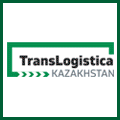Bocholt/Berlin – The Duvenbeck Group and its business partners have managed a place in the final round of this year’s competition for the German Logistics Prize through intelligently interlinking truck and railway transport services when supplying goods to the production lines of the premium vehicle manufacturer, Audi. The major focus here is on the supply chain for the car manufacturer and this has been operating for six months and is making a significant contribution to decarbonisation. The key element in the “Relay Zero Supply Chain” project is an Audi railway concept where transporting truck trailers by rail has become an integrated part of an all-round logistics system – from the suppliers to the factories; the Duvenbeck Group centrally manages the road services to and from the rail operations. Helrom is using a patented technology for the loading and transport services, which enables the flexible loading of truck trailers without the need for any expensive special terminals.

Manuel Gröbl, Managing Director of Duvenbeck Logistik GmbH (left), with his project partners – Roman Noack, CEO of Helrom (centre), and Dieter Braun, Head of Supply Chain at Audi (right) – at the German Logistics Prize ceremony in Berlin. (photo Duvenbeck)
In more specific terms, the four Audi factories at the company’s three business sites in Neckarsulm, Ingolstadt and Győr in Hungary are networked by centrally synchronising the truck transport operations, while rail services account for the main part of the intermodal journey. This means that more than 50 direct and a large number of groupage freight suppliers from seven different countries are reliably supplying the Audi production sites with approximately 6,500 different production parts.
A control tower at the Duvenbeck business site in Niederaichbach is the focal point where all the threads come together. Thanks to digitally networking the entire transport chain, it is possible to track each individual delivery. The block train, which is more than 600 metres long, has been shuttling between the terminals at Regensburg and Lébény in Hungary every working day since 5 April this year and this is a route that covers a distance of more than 500 kilometres. This train carries 36 Duvenbeck trailers on each journey. The concept creates benefits at three central points: 185,000 fewer transport kilometres on the roads every week, a reduction in CO2 emissions of up to 11,500 tonnes per annum and lower costs overall. And Duvenbeck is using biogenic fuels such as HVO100 to decarbonise the initial and final delivery operations.
“Climate protection and sustainable transport solutions are fundamental elements in our corporate strategy. To reach these goals, we need innovative ideas such as those that we’ve introduced to supply factories with our partners, Audi and Helrom. Our excellent result in the final round of the German Logistics Prize shows us that we’re on the right track when it comes to decarbonising supply chains through combining our operations with other industries,” says Hakan Bicil, the CEO of the Duvenbeck Group. The winners and finalists for the German Logistics Prize accepted the awards on Wednesday evening during the BVL Supply Chain CX sector event, which was organised by the German Logistics Association and held in Berlin.

The companies honoured at the BVL Supply Chain CX industry event developed an intelligent interlinking between truck and rail transport services when supplying goods to the production lines of the Audi factories. (photo Duvenbeck)

Duvenbeck trucks are transporting about 6,500 production partes between the Audi factories in Germany and Hungary where the main part of the journey involves an intermodal service by rail. (photo: Duvenbeck)
Source, Media Relations



.jpg)






